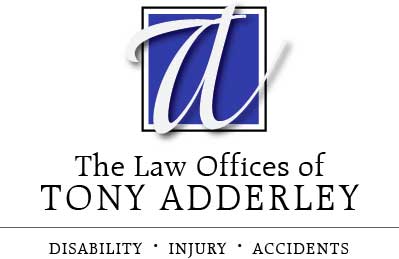File Appeals
Filing an appeal on claim denial
Filing an appeal when your Social Security Disability (SSD) claim is denied can feel overwhelming. Having an understanding of the steps and processes involved in filing an appeal can help make the process a bit easier.

Should you file an appeal or new application in my disability claim?
It depends on where you are in the disability claim process. Generally, if you have already applied and been denied, you would file an appeal. However, if your application was denied on certain grounds and you want to address those grounds to increase your chances of receiving benefits, then it may be worth submitting a new application. It is best to speak with an experienced disability attorney or advocate who can help you understand your options.
Whether or not to file an appeal for your disability claim depends on your individual circumstances. If you feel like you have strong evidence to support your claim and would like to pursue a better outcome, then you should consider filing an appeal. It's important to review the process in detail and seek assistance from a professional with knowledge in this area before making a decision.
The first step is to request a reconsideration of your denial. You must submit a written appeal to the Social Security Administration (SSA) within 60 days of your denial. Along with the written appeal, you must submit any additional information that was not included in your initial application. This could include medical information, statements from doctors, and records pertaining to your condition.
Once you have submitted your appeal, the SSA will review the information you provided and determine if your claim can be approved.
If your claim is still denied after the reconsideration process, you can request a hearing with an administrative law judge. You must make this request within 60 days of your denial. You will have a chance to present your case and have the judges decide if your claim should be approved.
During the hearing, you should be prepared to discuss details regarding your disability, medical history, work history, and lifestyle. You will also need to provide evidence to back up your claim. This could include documents such as medical records, doctor’s statements, and financial information. You may also wish to bring a lawyer to the hearing to provide legal advice.
If your appeal is still denied after the hearing, you can submit a Request for Review of the Hearing Decision to the SSA, also known as an appeal to the Appeals Council. You must make this request within 60 days of your denial. The Appeals Council will review the information provided to the administrative law judge and determine whether the decision is correct.
If the Appeals Council does not overturn the decision, your final option is to take your case to federal court. You must submit a Complaint in U.S. District Court within 60 days of the Appeals Council decision. At this level, a judge will review all the evidence and evidence presented at the hearing and make a final decision.
Filing an appeal of a denied Social Security Disability claim can be daunting. Knowing the process and the steps involved can help to make the task more manageable.
It is important to remember that the appeals process is designed to ensure that your claim is thoroughly reviewed and that you get the benefits you deserve. Seeking legal advice throughout this process can help you make sure that all possibilities for appealing your claim are considered and that your rights are fully protected.
Hiring an attorney to file your appeal
Experienced attorneys have a deep understanding of the SSD appeals process and can help you better navigate it. Here are a few ways lawyers can enhance your Social Security disability claim.
- They Understand the Complex Process and Regulations: Lawyers are intimately familiar with the laws and the regulations that govern SSD benefits. They can help the claimant understand the rules and how they apply to their specific situation. They also know how to argue for a determination in their favor and how to effectively present related evidence.
- Lawyers File the Necessary Documents: To make a successful claim for Social Security disability benefits, the claimant must properly fill out and submit all the necessary forms. An attorney can handle this tedious part of the claim process, to make sure that it is done correctly and all the forms are properly completed and submitted.
- They Conduct the Necessary Research: Lawyers will conduct a comprehensive review of the medical records on behalf of the claimant to make sure that all relevant evidence is presented to the judge. This involves obtaining medical reports, reviewing medical histories and interviewing witnesses.
- Lawyers Advocate on the Claimant’s Behalf: It’s an attorney’s primary job to represent their client in court. A lawyer will develop an argument and present the case in court. They are skilled in making sure that their clients receive justice, as well as ensuring that their rights are protected.
- Lawyers Appeal Denied Claims: If the initial application is denied, then an attorney can help you prepare and submit an appeal. They can help determine why the claim was denied and develop a strong argument to reverse the denial.
By engaging the services of an experienced lawyer, you can make sure that your Social Security disability claim is presented in the best light. An attorney can increase the chances of success and can help make the entire process much less stressful.

